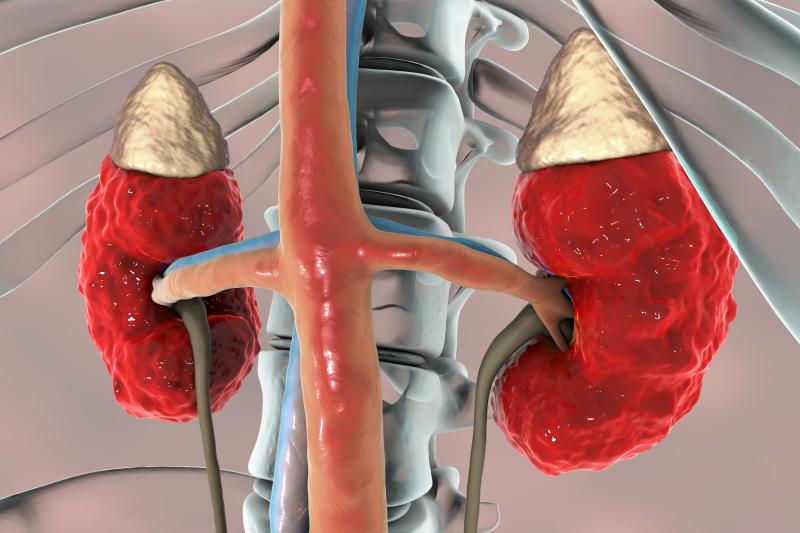
Use of sodium bicarbonate in the treatment of patients with chronic kidney disease stages 3 and 4 leads to an increase in serum bicarbonate and decrease in potassium levels, but with little to no effect on muscle function or bone mineral density when compared with placebo, according to the results of a trial.
The trial randomized 149 patients with CKD stages 3 and 4 to receive sodium bicarbonate (0.4 mEq per kg of ideal body weight per day; n=74) or identical-appearing placebo (n=75). Follow-up visits were conducted at 2, 6, 12 and 24 months. All patients underwent muscle biopsies at baseline and month 2.
Mean baseline serum bicarbonate level in the entire cohort was 24.0 mEq/L, while mean baseline estimated glomerular filtration rate (eGFR) was 36.3 mL/min/1.73 m2. Baseline characteristics were similar between the two treatment groups.
Compared with placebo, sodium bicarbonate did not produce any improvements in the dual primary outcomes of muscle function (sit-to-stand test; 5 repetitions: p=0.1; 10 repetitions: p=0.07) and bone mineral density (p=0.3).
However, mean serum bicarbonate levels with the active treatment were 26.4, 25.5, 25.6 and 24.4 mEq/L at months 2, 6, 12 and 24, respectively—significantly higher than with placebo (p<0.001). Sodium bicarbonate treatment resulted in a decrease in serum potassium levels that was of borderline statistical significance (p=0.05).
Other outcomes such as eGFR, blood pressure, weight, serious adverse events and muscle gene expression levels did not significantly differ between the treatment groups.
The study was limited by initial mean serum bicarbonate levels being in the normal range. Researchers noted that larger trials are needed to evaluate the effects sodium bicarbonate therapy on kidney function.